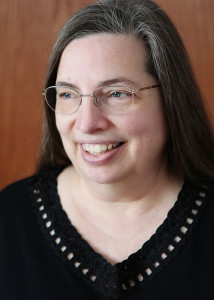Words are used in many ways
Sometimes they are my friends
Others sometimes use their words
That sound like love and friend
Extending from them
To me
But in reality
These words only sound like love and friend
But in the end the sound of them
Does not ring true and good
And is not of love and friend
But instead these words draw lines
Dividing
Their group of US
From my group of THEM
Society says it is ok
In fact it is perfectly fine
And noble
Even though self-serving
Entirely acceptable
To divide out those THEMs
From USes
As long as it’s done
With a smile
Using words that are initially tolerable
Because
Society needs a way to talk about THEM
Because in the end
It is only for THEIR own good
To help them
To get services
To provide the spot for THEIR inclusion
(Once they have proven themselves able to handle it)
Sneaky words said with a smile
While holding a piece of chalk
To draw the dividing line
Made by words
Sounding alright on the surface
But laden with
Otherness
Less Than
Different
Not US
And sometimes Not Quite Human
We are the people you call
- Special
- Low Functioning
- High Functioning
You say we are in need of a
- Peer Buddy
- Peer Pal
- Good Friend from Mrs. Jones Program
We are the
- Inclusion Student
- The community service hours other kids need
We sit
- At the Peer Buddies lunch table
- The Special Ed table in the Inclusion Room
- On the Special Ed bench waiting for our short bus
During the school day you will find us in the
- Inclusion Room (when it is our turn because they can only take one of us at a time)
- Cognitively Delayed Room
- Behavior Room
- Emotionally Disturbed Room
- EBD Room (Emotionally Behaviorally Disturbed)
- Special Ed Room
- Special Needs Room
We are so doggone “special” that after school we attend
- Special Olympics
- Special Arts
- Special Night at the YMCA
- Special Needs Social Group
Where every participant is just as special
And those who are not special are our helpers
When we grow up we live in
- Special Housing
- Some of us in Section 8 rentals
- Some in group homes
- Some in county care facilities
- Some of us are so special that there isn’t even a special enough place for us so we stay living with our parents.
- Some of us are not quite special enough to get on a housing list and yet cannot maintain on our own so we stay living with our parents.
As adults too many of us spend our days
- In Special Programs (if our county has them)
- At ARC (if our town has an ARC)
- At Sheltered Workshops (if one is available)
- In Supported Employment (if we qualify)
- Looking for a job (on the days we are able to)
- On the couch in our parents home (because other options are not available)
Because we are so deficient
In ever so many ways
Whenever we do something ordinary
like zip up our jacket, ride a horse, or answer Jeopardy questions you describe us as
- Awesome
- An Inspiration
I don’t understand this. If my friends and I are such awesome inspirations to the rest of you
- Why is it that we are in two distinct groups – US and THEM?
- Why is it that your group always holds the chalk?
- Why do you keep using your chalk to draw lines that divide us?
- Why do you want me on the other side of your line – away from you?
- And why do you think this is good?
BOOKS BY JUDY ENDOW
Endow, J. (2019). Autistically Thriving: Reading Comprehension, Conversational Engagement, and Living a Self-Determined Life Based on Autistic Neurology. Lancaster, PA: Judy Endow.
Endow, J. (2012). Learning the Hidden Curriculum: The Odyssey of One Autistic Adult. Shawnee Mission, KS: AAPC Publishing.
Endow, J. (2006). Making Lemonade: Hints for Autism’s Helpers. Cambridge, WI: CBR Press.
Endow, J. (2013). Painted Words: Aspects of Autism Translated. Cambridge, WI: CBR Press.
Endow, J. (2009). Paper Words: Discovering and Living With My Autism. Shawnee Mission, KS: AAPC Publishing.
Endow, J. (2009). Outsmarting Explosive Behavior: A Visual System of Support and Intervention for Individuals With Autism Spectrum Disorders. Shawnee Mission, KS: AAPC Publishing.
Endow, J. (2010). Practical Solutions for Stabilizing Students With Classic Autism to Be Ready to Learn: Getting to Go. Shawnee Mission, KS: AAPC Publishing.
Myles, B. S., Endow, J., & Mayfield, M. (2013). The Hidden Curriculum of Getting and Keeping a Job: Navigating the Social Landscape of Employment. Shawnee Mission, KS: AAPC Publishing.
Originally written for and published by Ollibean on February 13, 2014.
